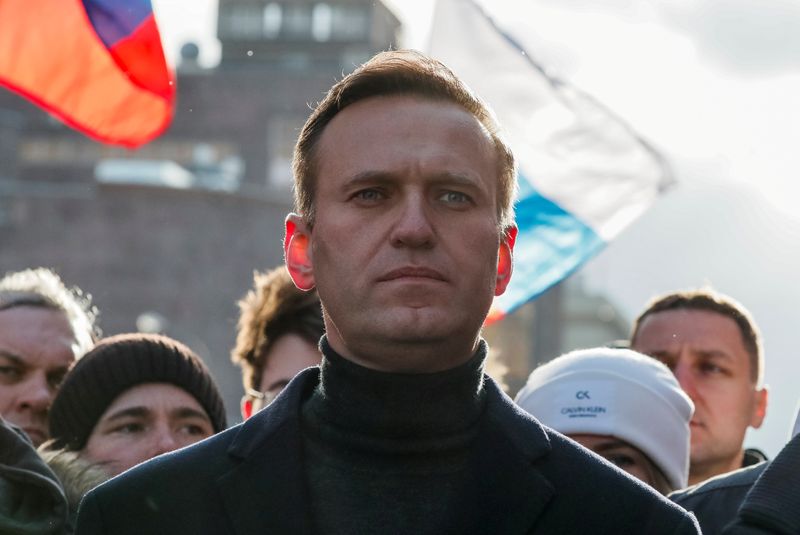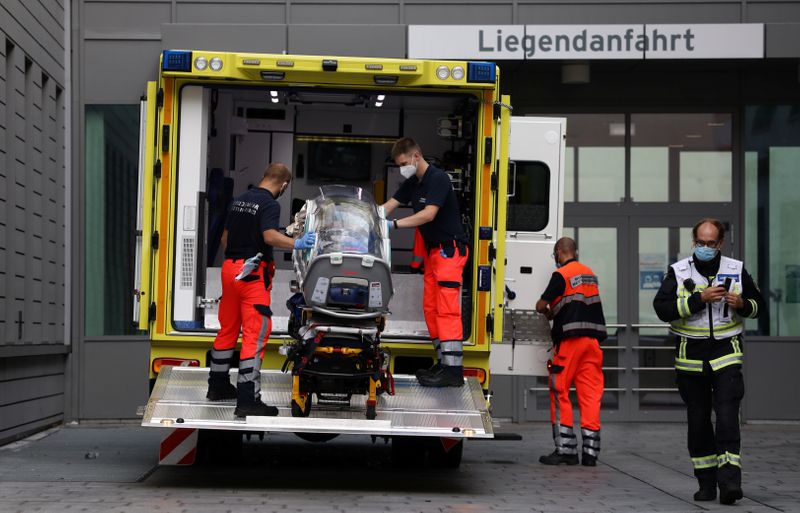MOSCOW (Reuters) – Russia has asked Germany to provide exhaustive details of medical tests conducted on Alexei Navalny, a Russian opposition politician lying in a coma in Berlin after a suspected poisoning in Siberia last month, a newspaper reported on Wednesday.
Russian newspaper RBC said the general prosecutor’s office had asked Germany’s justice ministry for information on Navalny’s treatment, including test results for drugs, poisons, heavy metals and cholinesterase inhibitors, which affect the nervous system.
There was no immediate comment from the prosecutor’s office, or from the German justice ministry on how it would respond to the request.
Russian prosecutors said last month they saw no need for a criminal investigation into the case as they had found no sign that any crime had been committed.
Navalny, a thorn in the side of President Vladimir Putin for the past decade, was taken ill on a flight from Siberia to Moscow on Aug. 20 after drinking tea at the airport. His allies believe he was the latest of several Kremlin critics to be deliberately poisoned, but Russian authorities have said there is no evidence of this.
Navalny was flown last month to the Charite hospital in Berlin, where doctors said he may have been poisoned with a cholinesterase inhibitor, a substance found in nerve toxins such as the one used in the attempted poisoning of a former Russian double agent in England in 2018.
“Is there a conclusion of a commission of forensic medical experts with a detailed spectral analysis of any narcotic, psychotropic, potent, poisonous substances identified in the organism of A.A. Navalny, including heavy metals?” asked the letter, which was posted in full on RBC’s website.
“Were any substances found in A.A. Navalny’s biological specimens from the group of cholinesterase inhibitors? Which ones, exactly?”
It posed a series of other detailed questions, including:
– What medicines were being used to treat Navalny, and in what doses
– Whether his condition had worsened, and why
– What were the results of tests on his heart and respiratory and central nervous systems.
The prosecutor’s office asked for samples to be taken from Navalny’s blood, urine, hair, nails, saliva and the inside of his cheek, and for copies of medical reports to be provided as soon as possible.
It promised to treat the results confidentially, and solely for the purpose of investigating what had happened to Navalny.
The letter said Russian investigators had meanwhile seized more than 100 items, examined closed-circuit television footage and ordered more than 20 forensic examinations but had so far not uncovered evidence that Navalny had been the victim of a deliberate criminal act.
(Reporting by Mark Trevelyan, Editing by Andrew Osborn and Timothy Heritage)
























